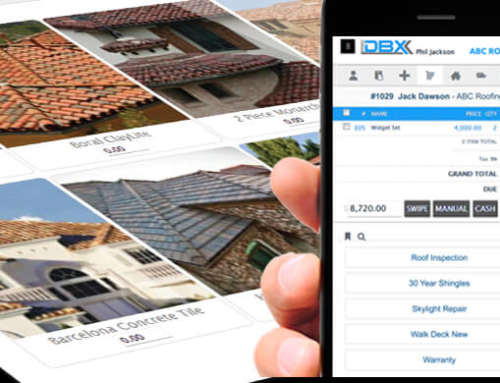A Reputation Management System is key in identifying your strengths and weaknesses through communication with your current, former, and potential customers.
While good business practices and services are often a direct cause for a good reputation, it may not always prove to be sufficient. Independent variables, such as misunderstandings between a consumer or just a customer with malicious intent, exist. Due to the existence of these variables, some businesses seek aid from a Reputation Management System.
This type of system enables a company to promote positive reviews, in turn providing with a method to improve or maintain reputation, while simultaneously allowing for time and space to resolve any customer complaints.
The ideal software would permit the user to create and customize surveys to their liking, assess which areas require improvement, and track the results it generates.
Advantages
The benefit there-in lies in the ability to improve a business’ reputation. Incentives to post a positive review can be provided to the users who have left positive marks.
The direct result will be an increase in positive exposure, allowing one’s company to move up on the search lists of popular search engines such as Google, Yelp, Angie’s List and others.
As reputation is complex and requires a great amount of time to change, the ability to positively guide one’s reputation early on becomes an invaluable asset.
Take into consideration that the average customer will consider his or her options regarding a product or service before coming to a conclusion. These consultations will predominantly be in the form of reviews, usually on the internet. In this instance, reputation will come into play.
If there are other companies providing the same services at a similar cost, then the customer would look towards quality. Should the quality be roughly the same, then the customer will take into account, reputation and credibility. It is in such an instance where bad reputation will greatly hinder business.
With a reputation management system, a company can look to gain an advantage over other companies by promoting their positive reviews.
This can sway customers to one business over its competitors by demonstrating to potential customers the positive reputation the business holds, ultimately increasing revenue.
Reputation management systems do not focus solely on positive reviews. These types of systems can also handle negative reviews as well. This is primarily done by notifying the user of any negative feedback before the situation explodes.
This provides a buffer, giving the company time to assess the dilemma and handle it in a timely manner. By promoting positive reviews and handling negative feedback, a reputation management system can greatly improve a business’ credibility.
Disadvantages
Just like with most aspects of life, there are disadvantages to reputation management systems as well. One such disadvantage is the cost of this system.
Buying software off the shelf may provide a cheaper alternative, but not exactly the right quality or features a company may need. For the most effective systems, a custom software would have to be used in place.
The downside to purchasing custom software, however, can potentially be draining on the monetary assets. Another disadvantage to using this system is the possible conflict with other programs that may be running alongside it.
There is a chance that a compatibility issue with the reputation management system and pre-existing programs would occur. Should the system not come with all the features required, additional purchases of other software may be necessary. All of these purchases could result in even a larger cost as well as a great deal of frustration.
A majority of the software that offer surveys and reputation management are standalone programs. This means these programs are run as a separate computer process rather than an add-on of an existing process.
Another issue with standalone programs is the inability to install the program simultaneously onto different devices. It must be done one at a time, consuming valuable time.
The Solution
While the benefits of a reputation management system are great, the drawbacks are quite daunting. The ideal software would provide a business with all of the advantages without the heavy cost and potential software conflict. One such product exists. Pro DBX has all that and much more.
The Reputation Management System offered by Pro DBX provides businesses with the ability to create and fully customize different surveys for their varying needs, track the results of each survey, and provide alternate ending follow ups to the user based on their answers.
This software is cloud-based, indicating an ease of access, whether it be on your phone, tablet or computer. Above all, this software will be tailored to suit each individual’s needs, giving only the features needed to run the business and avoiding any software conflict.
Not only can this software promote positive reviews, the handling of negative reviews is also a feature offered. Pro DBX’s Reputation Management System is capable of creating reports regarding each survey or surveys selected.
All of these results are then tracked, creating an easy way to view all areas of the company. Depending on the settings, the user can allow notifications for different employees to assess any problems regarding the customer’s input.
In the event a customer has left negative reviews, the user can specify an ending that encourages the customer to consult with customer service or allow an employee follow up before the customer decides to post a negative review.
This provides a method to manage complaints. By utilizing this software, a company can promote positive exposure and resolve any complaints a consumer may have.
Pro DBX’s Reputation Management System is a highly efficient software that will aid in the prosperity of businesses.






Reputation management is an important part of the business. To run our business successfully reputation management is the best to work on. Cause, the success depends on its reputation.
Well, I must say that It was really a good read on this topic! It’s good to see someone put forth recommendations on reputation management. As you point out, there are a lot of ways to manage business reputation very easily.
Anyway, Great selection! it was very useful. Thanks for putting top-notch content in the article. It will encourage people to work more effectively and gain potential results from it. I would like to be here again to find another masterpiece article!